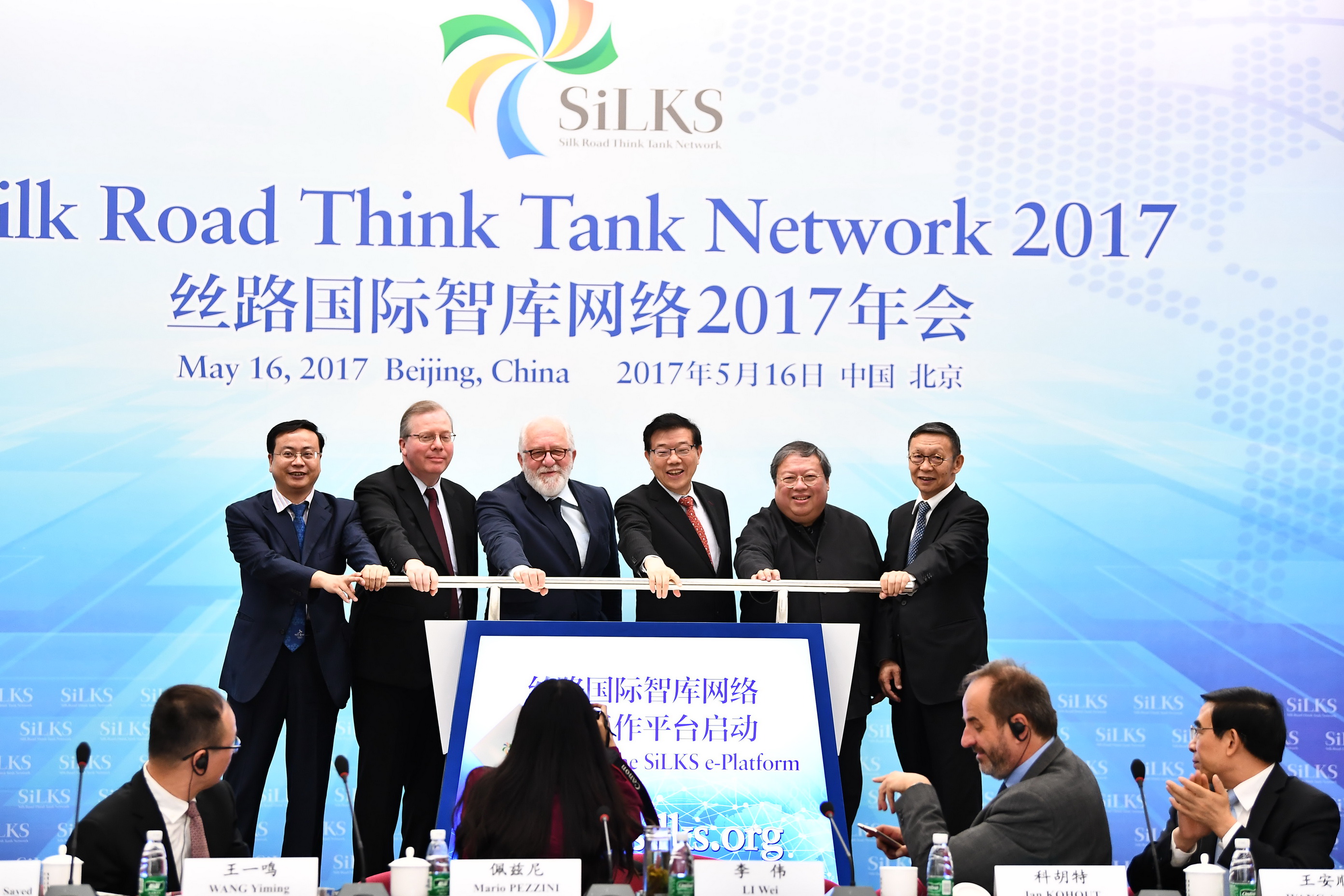SiLKS' Declaration on supporting the Belt and Road adopted
- Details
BEIJING- May 16, 2017- At the SiLKS Annual Meeting Li Wei, Minster and President of Development Research Center, stressed the importance of the Silk Road Think Tank Network’s role in facilitating strategy coordination and people-to-people connectivity.
The Silk Road Think Tank Network, known shortly as SiLKS stretches into its 3rd year, achieving a common understanding about the BRI benefits for all countries involved and focusing on joint action to further develop and support the Belt and Road Initiative's implementation.
Over 170 distinguished delegates from 12 international organizations, 43 think tanks, and 20 multinational enterprises attended the SiLKS Annual Meeting.
The first Steering Committee of the SiLKS, comprising of 11 prestigious representatives of its members and partners, was established. Mr. Li Wei, President of DRC, serves as the Chairman of the first Steering Committee.
The Silks e-platform (www.esilks.org), which will facilitate future communication and cooperation between our SiLKS members and partners in this digital era, was launched at the meeting.
The first Steering Committee approved New Silk Road Institute Prague to be a new member of the SiLKS, and CEI, GIZ, EBRD, IRU, WOC, and Future Mobility Corp. to be 6 new partners of the SilKS.
SiLKS’History and aims
The Silk Road think tank network has become recognized as an international platform for collaboration and collaboration of think tanks, co-funded by the State Council Development and Research Center. It was officially established at the Silk and Road Forum held in Madrid, Spain, on October 28, 2015, to provide intellectual support for progress in the joint discussion and construction of the Belt and Road project. Currently, SiLKS has 47 members and partner institutions, including 34 authoritative think tanks from 27 countries and 8 international institutions, and 5 internationally recognized companies, such as UNDP and UNIDO.
Dr. Jasna Plevnik's speech at the SiLKS' Annual Meeting

The third SiLKS Annual Meeting: Minister Li Wei and Dr. Jasna Plevnik, Vice President of the GEOFO
The orientation on inside regional and sub-regional joint activities
„Ladies and gentlemen, I would like to thank experts of the Development Research Center for their fascinating work to open and build many links for promoting and explaining Belt and Road’s benefits and risks.
It is extremely encouraging that SiLKS' holistic academic push of the Belt and Road helps BRI countries and the world to look at the Initiative as a resort for improved, better globalisation.
I will try to give a few tougths how we could move forward the SiLKS' joint actions.
The Initiative has already established itself as the inter-regional cooperation among big world regions: Europe, Asia, and Africa. I suggest the SiLKS should initiate and develop an approach that will be more inside-regional, more focused on cooperation and policy coordination iwithin regions, and even sub-regions under the Belt and Road. That kind of deeper regional and sub-regional cooperation within the Belt and Road Initiative could increase unity and the stability inside and between regions and through that speed up implementation of Belt and Road projects and bring prosperity to people faster.
All participants of the Initiative should be encouraged by SiLKS to discuss and research their national benefits and challenges within the Belt and Road an its all levels: global, regional and sub-regional.It may sound contradictory but to be fully implemented and united the BRI should be first divided into regional, and sub-regional approaches and policies.
This orientation could create a base for all levels BRI policy coordination among Europe, Asia, and Africa. Focusing on that kind of approach will allow SiLKS to package global, regional, and sub regional expertise together with business conditions and could improve New Silks Road's projects performance.
THREE RECOMMENDATIONS:
 To initiate and adopt a more inside regional and even sub regional approach towards BRI policy coordination.
To initiate and adopt a more inside regional and even sub regional approach towards BRI policy coordination.
 To outline the BRI as an amplifier of multilateral and win-win cooperation.
To outline the BRI as an amplifier of multilateral and win-win cooperation.
 Building of SiLKS regional network should be more based on burden-sharing approach.
Building of SiLKS regional network should be more based on burden-sharing approach.
Over 170 distinguished delegates from 12 international organizations, 43 think tanks, and 20 multinational enterprises attended the SiLKS Annual Meeting.


